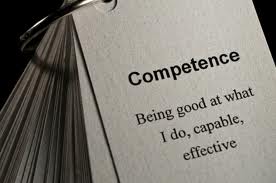7 Tips On How To Criticize Children With Care
“You really shouldn’t let your child manipulate you.”
“You really shouldn’t eat dessert. It will ruin your diet.”
How would you feel if someone told you these helpful statements? Defensive? Annoyed? Angry? If so, you are not alone. It is challenging to hear rebuke even if it is for one’s own benefit.
As parents, it is our obligation to give our children rebuke and guide them on the correct path. If we will not nudge them gently in the right direction, how will they know not to stray? At the same time, we cannot just dispense heaping spoonfuls of rebuke. At best, the child will tune it out; at worst, he will rebel. Either way, the child will most likely become crushed and broken. Giving rebuke in a positive, effective manner is a balancing act. When given respectfully and smartly, we can get our messages across and still maintain our child’s dignity. As is said by the age-old adage, “Dispense criticism like pepper and compliments like sugar.”
As you are about to give rebuke, it should be done out of love and care (put your arm around the child’s shoulder, pat his hand while rebuking him), rather than stemming from anger or embarrassment. A motive such as, “what will the neighbors think?” or “this is ruining our family reputation” is not valid. If your child has done something wrong and you are not in the state of mind to give him rebuke, either wait until your feelings simmer or have another objective party do the guiding.
When rebuking your child, choose your words carefully. Be clear. Keep it short and sweet. Sometimes, even a stern look or gesture can be enough to get a message across. Don’t use sarcasm, put-downs or comparisons. Keep your tone of voice friendly. Don’t start a discussion or argument. Try to think of a positive way of phrasing your message, such as “When your blouse is tucked in, you really look like a princess.”
Most importantly, try to preserve your child’s self-esteem and self-image. Of course, that means to give rebuke in private and to criticize the action not the person, such as your room is so messy vs. you are a slob. Your goal is to improve character traits. Below are some suggestions how to do this:
- Allow the child to figure out on his own what he did wrong. It is much easier to swallow the rebuke that way. So, instead of yelling at your seven-year-old for bossing his playmate, you can tell him, I saw how you treated your friend when he came over. How do you think he felt?
- Remember to use the skill of negative-I messages. “When I entered the living room and saw the food left by your studying team, I felt annoyed at your lack of responsibility and initiative to clean up.”
- With younger children, you can weave a message into a story about a child of the opposite gender, living in a different city…with the same challenge. Or you can find a book with a message similar to the one you wish to impart.
- You can describe what you see going on, rather than offer direction. I see toys on the floor that can cause someone to trip. You can also state rules, rather than give orders, such as when milk spills, we use a rag to clean it up.
- For children who have a hard time accepting rebuke, you can sugar-coat your words by keeping your message open-ended. For example, “You might want to consider eating breakfast today, since you need more energy to take the big test…”
- Always try to teach your child a skill rather than criticizing a given area. For example, instead of telling your son his briefcase is messy, teach him how to organize it.
- Finally, teach your child that accepting rebuke is a skill to work on. You are their role model, teaching them to accept rebuke graciously. Children must understand that to improve, we must all listen to each other’s constructive criticism.
Of course, it’s hard to master the skill of giving rebuke effectively. However, it’s even harder not to give rebuke at all and hardest to give it in a constructive way. So, keep these words of rebuke in mind…as you give your child rebuke and honest feedback.
Did you ever feel annoyed or angry at someone for giving you rebuke in an inconsiderate manner?
A Parents Actions Speak Louder Than Words
 Actions speak louder than words. In fact, they speak 93% louder than words. That’s because, case studies prove that 93% of our messages are communicated through body language, divided between 55% conveyed through the emotional messages of face-to-face interaction and another 38% transmitted through the voice. This means that only 7% of communication is expressed by our words. That’s astounding!
Actions speak louder than words. In fact, they speak 93% louder than words. That’s because, case studies prove that 93% of our messages are communicated through body language, divided between 55% conveyed through the emotional messages of face-to-face interaction and another 38% transmitted through the voice. This means that only 7% of communication is expressed by our words. That’s astounding!
In practical terms, this means that we can be giving the most loving, caring speeches to a child, and yet, if he does not feel the love and care behind these statements, then they are almost worthless. In contrast, we can be giving the most stinging rebuke to a child, but if our body language continues to convey respect and love, then the very sharp criticism is transformed into a cherished moment symbolizing love and concern for the child.
People believe non-verbal communication more readily than verbal communication. That’s because, while one can pay lip-service to giving fine platitudes without really meaning them, one can rarely put on a convincing act of body language. For example, when we say no to a child, yet we sound unsure and doubtful, the message that there is room for negotiations speaks louder than the word no.
In addition, non-verbal communication happens continually, all day long, as opposed to verbal communication, which happens only when we engage in conversation. At times, we might think that we aren’t being expressive, while in reality we are sending messages all the time through other means, for example a look of annoyance or a grumpy face.
We must make sure that our non-verbal communication matches our verbal messages. Otherwise, our children become confused and insecure.
For so many reasons, we must work from inside-out and start tuning in to the silent signals we give our children.
Start by analyzing your facial expression. When your child arrives home from school, do you look happy? Uptight? Worried? Concerned? Excited? Remember: A face is public property, always open for public viewing. Make it pleasant and warm.
Think about eye contact. When you look your child in the eye, you convey your love and concern for him. You show him you truly care about him.
Brainstorm for different positive gestures, which can help you express your unconditional love for your child. A pat on the back, a stroke on the cheek, a small handwritten note, a thumbs-up; these speak so much more than long-winded messages.
Examine your tone of voice. Listen out for its intensity and loudness. Messages conveyed softly and are easier to intercept and accept. In addition, our tone can sound firm and confident or uncertain and meek/trusting or critical/proud or disappointed/excited or sad.
When a parent-child relationship is positive, the child is eager to hear from and please the parent. However, when the relationship is strained, it is important to examine our forms of communication. Think of non-verbal ways to express genuinely positive messages to the child-and you will see how far these silent messages can reach.
Resilience: How Parents Can Foster Competence In Children
 Competence is the ability or knowledge to handle situations effectively. Competence is acquired through real life experience. First, one acquires skills. Then, he learns to trust his own judgment, make responsible choices and face different situations.
Competence is the ability or knowledge to handle situations effectively. Competence is acquired through real life experience. First, one acquires skills. Then, he learns to trust his own judgment, make responsible choices and face different situations.
Competence is the first of the 7 C’s, because it provides the bedrock and backdrop for resilience. Without competence, it is unlikely that the other 6 C’s could be developed. A parent’s role in fostering a child’s competence requires some introduction.
As your child matures, he learns more skills, masters new achievements and reaches a higher level of competence. Your reaction to these milestones has a direct effect on his motivation to continue striving. If you react by applauding his efforts, your child learns that his achievements are important and noteworthy. However, if you ignore his accomplishments, due to your hectic life or because you take these miracles for granted for your child is merely following the path that everyone trots, you send him a subtle message that it doesn’t pay to continue trying. In the same vein, if you are overly involved and ceaselessly praise, prompt, push, prod and protect, the excessive pressure will stilt your child’s growth, because he will end up feeling incompetent. Besides, the child may be pressured into aiming for more than that which is naturally possible, interfering with the natural growth process. You want to strive to create a healthy balance of encouragement, without excessive interference or indifference.
For many parents, it’s difficult to remember that they are not playing the starring role in their child’s life’s show. They have an innate urge to direct, correct, fix and help out. Yet, it is imperative that you step aside and allow your child to attempt on his own. This tells your child, “I have faith in your ability to succeed.” When you allow your child do his writing on his own, you express your confidence in his creativity. When you encourage your child to build clicks to his own specifications, you communicate, “I think you are capable.” These messages empower your child. Even if the end result is less satisfactory than if you would’ve added your input, the lesson your child learnt through the independent process more than outweighs the disadvantages.
Every time you “take over the steering wheel,” so to speak, you undermine your child’s feeling of competence. By single-handedly solving all of your child’s problems, you create a situation in which your child is crippled; he is permanently dependent on you. In contrast, whenever you “get out of the way” and allow your child to flex his own problem-solving muscles or give him gentle encouragement from the sidelines, you foster your child’s independence, self-reliance and competence. You diminish your child’s internal power struggles to develop his own identity, giving him the confidence to turn to you for nurturance that has no age boundaries.
Why do parents have an urge to “man the show”? They think: otherwise, their child will fail; their child is not trying his hardest; they will be embarrassed by their child’s poor reflection of them; people will judge them based on their children, so their children must be perfect products; their child experience the same discomfort they feel when making mistakes, so they wish to protect them; their children will not live up to their high standards of wrong and right; or simply, criticism is the best form of guidance, and this judgment is crucial to self-improvement.
Parents tip-toe on a tightrope throughout their child’s growing years. Every new phase presents another twist on the same old question: To be or to let be? To be there too much, to be there too little or to let the child simply be?
It begins when the toddler takes his first step. Will his mother applaud him, ignore him or scoop him up into her arms, lest he fall and hurt himself? It continues as the toddler begins progresses to walking around the house and exploring his environment. Will his mother constantly yell at him for touching her delicate knick-knacks or will she child-proof her home to enable him to delight in the joy of discovery? It is highlighted as the four-year-old child begins to play with toys, when the mother can allow him to use his fertile imagination to build the tower of his heart’s content, or she can “take over” the job as “construction foreman” giving him detailed instructions about every brick, or she can ignore his efforts and simply remind him to clean up. It is replayed as the six-year-old paints a picture; his mother can appreciate his creativity and give specific compliments about the painting, or “teach” him how to do it better next time. It continues as the ten-year-old’s teacher assigns a science project. Mother can encourage from the sidelines, do the project for the child or knock the child’s efforts by comparing his results with a classmate’s. It intensifies as the child hits adolescent friend problems. Does mother dictate a solution, fix the problem by interfering, downplay the child’s hurt or boost the child’s competence by displaying your trust in him and asking, “What do you think you could do to make things better?”
In every phase, in every stage, the props may be different, but the parent’s reaction sends the same signal. Even the age-old dilemma of sibling rivalry presents a scenario in which parents can choose to “be judge” and solve their children’s fights or say, “I trust that you can work this out on your own.”
Lesson number one in fostering your child’s competence is “getting out of the way” and giving him the opportunity to develop this trait on his own.
Lesson number two is giving your child free time to play. Over scheduling a child’s unstructured time (i.e. every Sunday is filled with a program, starting with music lessons from 9 to 10 am and ending with baking sessions from 9 to 10 pm, with an hour-by-hour itinerary in between) is yet another way of limiting the child’s ability to explore his own areas of competence. Free play is an opportunity to develop imagination and discover personal areas of interest – to realize new areas of competence. Free play also teaches the child to achieve competence in many life skills, such as working with others, negotiating, sharing and giving in. It is also an opportunity for the child to develop on his own pace. In addition, when you observe or join from the sidelines, while letting the child direct the activity, you gain a new perspective of your child’s world from his vantage point.
In addition to avoiding over-interference and giving your child free time to develop his own areas of competence, lesson number three is praise and criticize your child smartly.
A smart parent will praise even “ordinary, age-appropriate” achievements. A smart parent will not overdo the praise, for the child will feel talked down to and become unmotivated to strive for true greatness. A smart parent will use specifics to praise, such as “You used a beautiful shade of red to paint that flower,” instead of using vague, clichéd generalities.
Well-targeted criticism is even more tricky, but equally crucial to develop a child’s competence. Damaging criticism is crippling; it causes a child to feel incapable, (the opposite of competent,) crushes his motivation and leads to shame, anger and resentment. Yet, without guidance, a child cannot progress. A parent cannot be afraid to point out how a child can improve; she should simply seek to do it smartly.
When criticizing, be constructive and be specific. Criticism that’s constructive offers concrete advice as to how the situation can be remedied instead of harping on the problem. “To clean up spilled milk, we use a rag and…” Criticism that’s specific is geared for the given situation and does not attack the child. It’s ok to target the scenario and say, “you have talked on the phone long enough is coming and each family member is needed to pitch in. We need your help to pull the wagon” It’s not ok to negate the entire person and yell, “You’re one selfish, self-centered child!” Criticism is even smarter when the child is given room to figure out on his own how to solve his problems, thereby adding to his competence and not destroying his confidence – besides, of course, having the child master the lesson in a more permanent, effective manner.
These three pointers are a backdrop upon which your child can begin to build his own fortress of strengths; the fertile ground to breed upon competence; the bedrock to foster the seven C’s, ultimately leading to resilience.
Think, “I can!” and you most certainly will. Thoughts of competence cause a person to deal effectively with difficulties. Instead of being negative about the unlikelihood of overcoming a challenge and becoming stuck on the first instinctive depressing thoughts, a person can reframe his brain to “decatastrophize” the situation and optimistically explore different solution options. Studies prove that children and adults who learn to think positively about their ability to cope with problems become better copers. Reframing situations leads to discovering solutions. Discovering solutions makes a person confident in his solutionizing skills and competent to solve future challenges.
To help your child think more competently, teach him to analyze situations objectively and optimistically. When facing a hurdle, ask pointed questions, such as:
What went wrong?
How can we take control of this situation?
How serious is this – a wrangle, a bump or a catastrophe?
Teach your child not to magnify problems, but to make accurate assessments of the situation. In addition, help your child differentiate between matters that can be changed and things that are out of their hands. Train him to be realistic, so if he has no control over something, he should not waste his time on it.
Help your child self-talk his way out of a challenge. Teach him to ask himself: What went wrong? How do I feel about it? What can I do next?
These positive thoughts will lead to positive actions…and a greater sense of competence.









